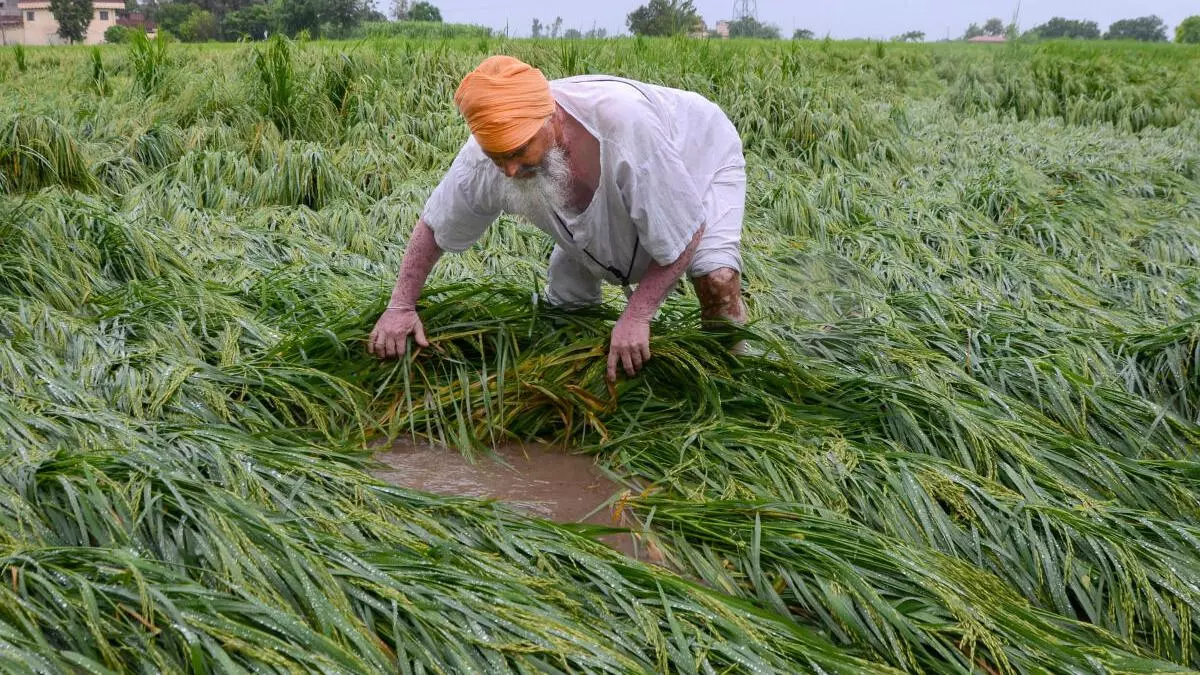Indian smallholder farmers see increase in high temperatures, droughts in recent years
Increase in droughts, and very high and longer periods of high temperatures are some of the problems smallholder farmers are facing in India in recent years, if a survey supported by Bayer is any indication.
While four in 10 smallholder farmers expect reduced crop yields due to climate change, three in 10 expect higher pest issues on their fields because of changing weather.
Bayer interviewed 2,056 Indian smallholder farmers associated with the Better Life Farming ecosystem, Bayer-supported Farmer Producer Organizations, and farmers enrolled in Bayer’s Sustainable Rice Programme between May and June for ‘Farmer Voice: India Deep Dive’.
The survey findings were released at a recent select virtual media round table by Rodrigo Santos, Member of the Board of Management of Bayer AG and President of the Crop Science Division.
Almost 97 per cent of farmers interviewed said the weather has changed in recent years.
Nearly 45 per cent of smallholders said they witnessed very high temperatures in recent years, and 23 per cent highlighted long periods of high temperatures. Nearly 30 per cent said they have seen the biggest change in weather in the form of an increase in droughts.
Climate change impact
Four out of 10 smallholders in India are expecting increased crop failure (43 per cent) and reduced yields (42 per cent) in their farms. Three out of 10 farmers (31 per cent) expect increased pest pressure because of climate change. Two in 10 farmers (22 per cent) feel that climate change will lead to less planning certainty and more volatile prices for crops.
On the top challenges in the next three years, 22 per cent of smallholders said cost and availability of labour presented the biggest challenge to their farm, and 21 per cent mentioned fertilizer costs.
How to mitigate risk
On the risk mitigation measures, one in four farmers said access to crop insurance would be most beneficial. One in five farmers said better infrastructure such as irrigation, tracks, and drainage would also be beneficial.
Almost 16 per cent of the smallholders said measures to protect and increase soil health would help their farm. These measures will support the resilience and sustainability of their farming activities.
Asked about the biggest revenue growth opportunity for their farms in future, 46 per cent of smallholder farmers highlighted innovation in seeds and traits and crop protection, and 12 per cent mentioned crop diversification. Around 5 per cent of smallholders also highlighted carbon farming and credits.
Thrust on digital tech
Around 36 per cent of smallholder farmers said access to better digital technologies would be most beneficial to improve their livelihoods.
Asked which digital farming practices they already use or plan to use, 47 per cent mentioned weather monitoring tools, and 22 per cent mentioned digital marketing tools to manage outputs. Some 13 per cent of farmers preferred drone sprays, and 21 per cent mentioned digital mapping and planning tools.
According to the survey findings, digital application devices such as sensors are less popular. Just 6 per cent of smallholder farmers said they already use or have any plans to use them.
Future is bright
Almost 82 per cent of smallholder farmers across different age groups, genders, size of farm and different farming practices felt positive about the future of farming for themselves. Two-thirds of the smallholders (65 per cent) said they would pass on their farm to the next generation.
